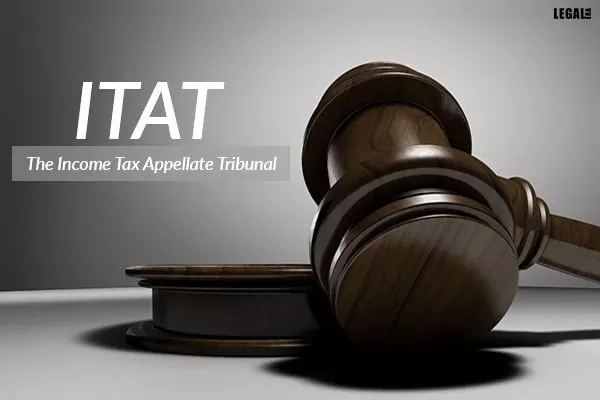- Home
- News
- Articles+
- Aerospace
- AI
- Agriculture
- Alternate Dispute Resolution
- Arbitration & Mediation
- Banking and Finance
- Bankruptcy
- Book Review
- Bribery & Corruption
- Commercial Litigation
- Competition Law
- Conference Reports
- Consumer Products
- Contract
- Corporate Governance
- Corporate Law
- Covid-19
- Cryptocurrency
- Cybersecurity
- Data Protection
- Defence
- Digital Economy
- E-commerce
- Employment Law
- Energy and Natural Resources
- Entertainment and Sports Law
- Environmental Law
- ESG
- FDI
- Food and Beverage
- Gaming
- Health Care
- IBC Diaries
- In Focus
- Inclusion & Diversity
- Insurance Law
- Intellectual Property
- International Law
- IP & Tech Era
- Know the Law
- Labour Laws
- Law & Policy and Regulation
- Litigation
- Litigation Funding
- Manufacturing
- Mergers & Acquisitions
- NFTs
- Privacy
- Private Equity
- Project Finance
- Real Estate
- Risk and Compliance
- Student Corner
- Take On Board
- Tax
- Technology Media and Telecom
- Tributes
- Viewpoint
- Zoom In
- Law Firms
- In-House
- Rankings
- E-Magazine
- Legal Era TV
- Events
- News
- Articles
- Aerospace
- AI
- Agriculture
- Alternate Dispute Resolution
- Arbitration & Mediation
- Banking and Finance
- Bankruptcy
- Book Review
- Bribery & Corruption
- Commercial Litigation
- Competition Law
- Conference Reports
- Consumer Products
- Contract
- Corporate Governance
- Corporate Law
- Covid-19
- Cryptocurrency
- Cybersecurity
- Data Protection
- Defence
- Digital Economy
- E-commerce
- Employment Law
- Energy and Natural Resources
- Entertainment and Sports Law
- Environmental Law
- ESG
- FDI
- Food and Beverage
- Gaming
- Health Care
- IBC Diaries
- In Focus
- Inclusion & Diversity
- Insurance Law
- Intellectual Property
- International Law
- IP & Tech Era
- Know the Law
- Labour Laws
- Law & Policy and Regulation
- Litigation
- Litigation Funding
- Manufacturing
- Mergers & Acquisitions
- NFTs
- Privacy
- Private Equity
- Project Finance
- Real Estate
- Risk and Compliance
- Student Corner
- Take On Board
- Tax
- Technology Media and Telecom
- Tributes
- Viewpoint
- Zoom In
- Law Firms
- In-House
- Rankings
- E-Magazine
- Legal Era TV
- Events
ITAT Reiterates: Nexus Between TDS & Corresponding Income Element Is Notional/Conceptual

ITAT Reiterates: Nexus Between TDS & Corresponding Income Element Is Notional/Conceptual
The Income Tax Appellate Tribunal (ITAT), Delhi, by its coram comprising of Anubhav Sharma (Judicial Member) and Shyamim Yahya (Accountant Member) while adjudicating an appeal filed by HCL Comnet Ltd. (Appellant/Assessee), held that the Commissioner of Income Tax (Appeals) had committed an error in not appreciating the true intent of judgment of the Mumbai Tribunal in the case of Toyo Engg. India Ltd vs. Joint Commissioner of Income Tax (2005), wherein it has been held that it may not always be possible to directly co-relate a specific amount of TDS with a specific amount of income earned by an assessee in a particular assessment year.
The background of the case is that the Assessing Officer (AO) had ruled that the case of the assessee was squarely covered by Income-tax Officer v. Sikka International Freight Services (P.) Ltd (2010), wherein it was held that “the deduction of tax at source does not determine the year of taxability of the receipt stated in the TDS certificate. At best if corresponding income is not taxable in a particular year, the corresponding credit for tax deducted may not be granted in view of section 199 but reverse is not true. Merely because credit was claimed for tax deducted at source, it does not mean that the corresponding income is chargeable to tax.”
Thus, in that case, Tax Deducted at Source (TDS) claimed during the year under consideration on the deferred revenue was disallowed and added to the income of the assessee.
The AO held that the TDS credit on deferred revenue would be allowed in the relevant assessment year in which underlying revenue has been offered to tax.
On the other hand, the assessee argued that they had already offered the income on a gross basis. The deferred revenue of Rs. 60,73,52,960, which represented the gross income inclusive of tax, was accounted and would be taxed in the future years. The assessee contended that the assessing officer was not justified in adding the disallowed TDS credit to their income.
The ITAT observed that the nature of business of the assessee was such that the revenue from after sales services were recognized on year-to-year basis on percentage completion method, but TDS was made by the customer on the whole of upfront payment. Therefore, addition of disputed TDS amount to income of concerned previous year was not justified, opined the bench.
Therefore, the CESTAT further directed the AO to review the claim made by the assessee regarding the deferred revenue of Rs. 60,73,52,960 being offered in future years and held that if the AO was satisfied that the claim is in accordance with the law, the disputed addition made to the assessee’s income on account of TDS credit on deferred revenue shall be deleted.


